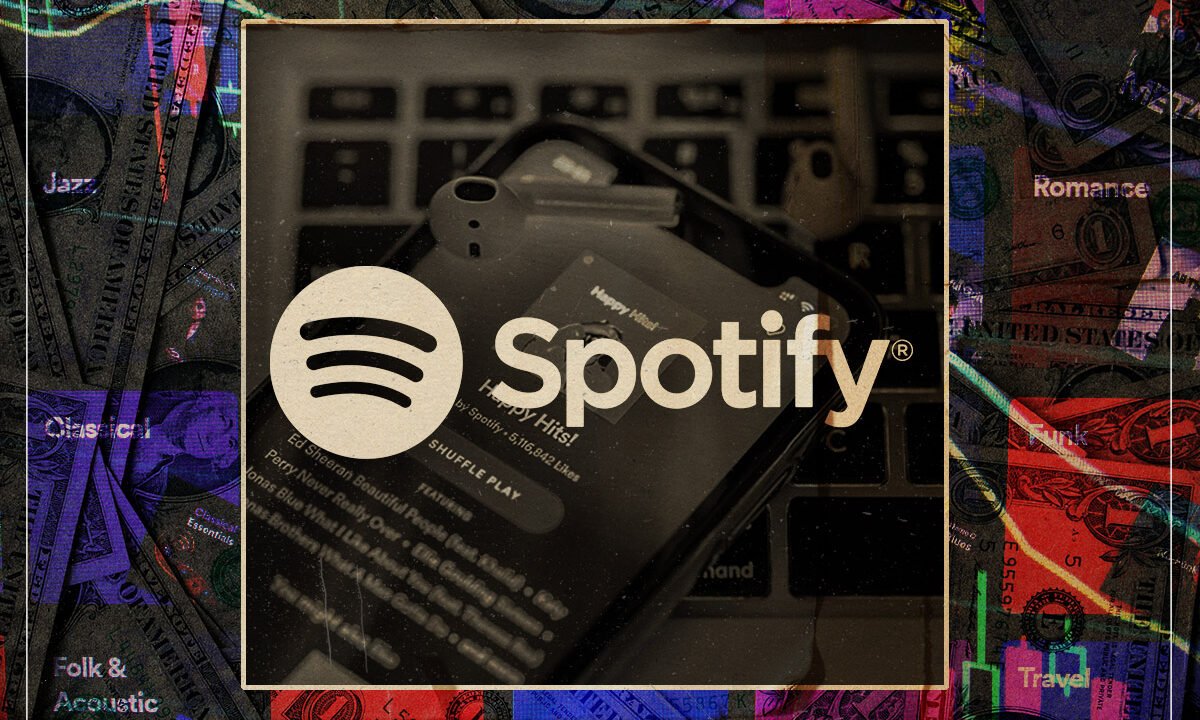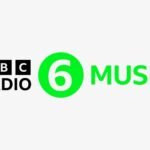

(Credits: Far Out / Spotify)
There’s a clear, categorical difference when comparing the artists that broke album sales records and topped the current Spotify streaming figures.
It’s all too easy to lapse into dreaded rockism when assessing who the lofty big names are that dwell at the top of the global soundtrack. A perusal across the biggest-selling artists reveals little in the way of surprises. The Beatles sit at the very top, followed by Michael Jackson, Elvis Presley, Elton John, and Queen, all fixtures of the 20th-century musical landscape.
The previous century’s rock and pop canon still looms large in the contemporary impression of popular music’s elemental foundations, and for good reason. The first thirty years or so burnished at lightning speed the templates of pop we frame much of new music today, from rock and roll’s first lightning riff, through Motown soul, Woodstock psychedelia, classic rock gyrations, punk fury, disco glitz, hip-hop’s street reportage, and the proliferation of synthesizers forming a new sonic language, Rolling Stone magazine has every right to wallow in its veneration for the soundtrack of yesteryear.
Yet, we forget how long ago this all is. The Chuck Berry generation is all but gone, the 1960s heroes are either side of 80, and many of the original punks will be claiming their free bus passes. Despite Ramones still paraded by Primark as the paragons of cool on an infinite amount of cheap t-shirts, or The Rolling Stones’ big red lips still managing to eke out an unquestioned brand of sexy, rock rebellion, one does ask how long such cultural touchstones can last.
Will there be celebrations in 2055 when Little Richard’s ‘Tutti Frutti’ reaches its centenary? A flurry of opinion pieces and retrospectives when Sgt Pepper’s Lonely Hearts Club Band reaches the big 100 in 2067? Steve Jones’ guitar attack on ‘Anarchy in the UK’ still rattles like a clarion call to arms in the year of our lord 2077?
There’s little doubt that the 20th-century songbook will live on long after we’re all dead and buried, yielding a fascination akin to the works of Mozart or Beethoven, but there are already signs that the monolithic command our collective musical deities once held has ebbed. A quick glance at Spotify’s most-streamed artists ever reveals a flash of today’s pop sensations who are household names, but plenty of acts even the most self-avowed music lover may struggle to recall even one of their hits.
Taylor Swift is inescapable, sitting at the top spot with nearly 110 billion streams, as well as boasting the highest-grossing tour of all time with 2023-’24’s The Eras Tour and sitting in the top 15 in global record sales. In third place is Drake, followed by The Weekend, Ariana Grande, and Ed Sheeran, all monster sellers that don’t exactly operate on another planet, known to even the Tommy Saxondale’s of the world.
Yet, in at number two? Bad Bunny. Know ‘em? Well, plenty have, touching just shy of 95 billion streams, trouncing The Beatles’ paltry 20. While Eminem and Coldplay are the closest the list gets to heritage acts, elsewhere, there’s BTS, J Balvin, Karol G, and, of course, Juice WRLD. You haven’t heard?
The fact is, most people just aren’t listening to Ziggy Stardust or The Boss, cultivating their own scenes, memories, musical evolutions, and heroes. While there’s plenty to discuss surrounding the streaming age’s issues surrounding algorithmic swamping of new talent, dismal streaming revenues, and the scourge of AI artists, Spotify indeed shows the artists who may well supplant the long-lauded cultural shadow of the previous century.
The most-streamed artists on Spotify in order:
- Taylor Swift
- Bad Bunny
- Drake
- The Weeknd
- Ariana Grande
- Ed Sheeran
- Eminem
- Justin Bieber
- Billie Eilish
- Kanye West
- Post Malone
- Coldplay
- Travis Scott
- Rihanna
- Kendrick
- Lamar Bruno
- Mars J Balvin
- Dua Lipa
- Imagine Dragons
- Juice WRLD
- David Guetta
- Lana Del Rey
- XXXTENTACION
- KAROL G
Related Topics







